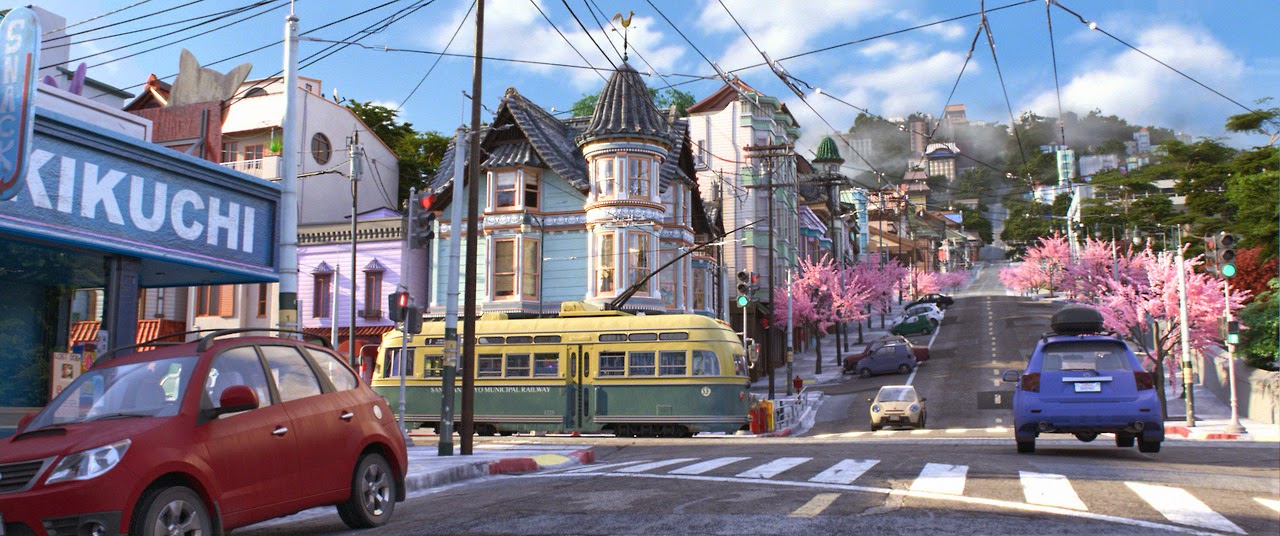Film Review: Zootopia
Let’s face the facts: as of late, Disney has been releasing
depressingly mediocre films. Unless they are working with Pixar, the animation studio
has suffered a slump with the popular but poorly developed Frozen and the plodding, predictable storyline of Big Hero 6. Don’t get me wrong, I loved
those films, but they were conspicuously lacking in terms of plot, and each maintains
a façade of panache only with the Disney name, rich art, gorgeous music, and
one emotionally charged scene after the other. The last truly solid story we
had was that of Wreck-It Ralph, and that was way
back in 2012—but now Zootopia delivers in full force, producing a rich, engaging world through riveting development of its multidimensional characters and compelling conflict. A film I didn't even dare to have high hopes for, Zootopia turns out to be almost entirely unyielding in the face of scrutiny: from start to finish confident, brave, and beautifully executed.
Protagonist Judy Hopps, a bunny who fights her way past
every odd, obstacle, and stereotype that gets in the way of her dream of
becoming a cop, is more of a powerful female lead than Anna or Elsa or Merida ever
had the capacity to be—and she didn’t need her movie to be paraded as a
revolutionary feminist innovation to do it.
She is lovable, badass, kindhearted, naïve, unprecedentedly strong and
unapologetically sweet. She is, in short, incontestably admirable. And she’s a girl!
The relationship between Nick and Judy is the strongest facet
of a consistently strong, multifaceted movie. It evolves fluidly, progressing
from one of enmity to adoration without any glaringly obvious turning points; their
bond is pure, platonic, and capable of conveying love with endearing rather than
overbearing sincerity.
Zootopia’s plot is fast-paced, engaging, well-organised, and fully embraces the presence of contemporary social controversy. Set in a world dominated by mammals of all sizes, the film is unapologetically addresses the systemic racism that persists in the world we call civilized through its own universe’s existing prejudices between predators and prey. Each component of the story works to accomplish two important things: first, to acknowledge that racism (specieism, in this case) is a real, dangerous problem; second, to condemn that problem. In a society which is increasingly intent on pursuing colour-blindness, the idea that people are capable of simply “not seeing race,” this is a vital message—for to deny that people possess inherent biases toward different races is to deny the existence of racism, which is very real, very dangerous, and very, very devastating.
Zootopia’s plot is fast-paced, engaging, well-organised, and fully embraces the presence of contemporary social controversy. Set in a world dominated by mammals of all sizes, the film is unapologetically addresses the systemic racism that persists in the world we call civilized through its own universe’s existing prejudices between predators and prey. Each component of the story works to accomplish two important things: first, to acknowledge that racism (specieism, in this case) is a real, dangerous problem; second, to condemn that problem. In a society which is increasingly intent on pursuing colour-blindness, the idea that people are capable of simply “not seeing race,” this is a vital message—for to deny that people possess inherent biases toward different races is to deny the existence of racism, which is very real, very dangerous, and very, very devastating.
Zootopia accepts that racism endures to this day but drives home
the point that it shouldn’t, and makes
it clear that undoing centuries of prejudice is a process which at its core is reliant
on individuals. It is individuals who need to make the decision not to judge
other individuals, and it is up to people on both sides of the racial divide to
bring unity to society as a whole.
Tactfully, tastefully, and without
compromise, Zootopia pairs thoughtful
exploration of a pertinent contemporary issue with timeless storytelling. The
characters are complex, coherent, and brilliantly memorable; the visuals, as
ever, successfully seek to express the full bounds of human imagination. This
movie is an instant classic, and a joyous, explosive redemption of four long
years of halfhearted endeavour.










